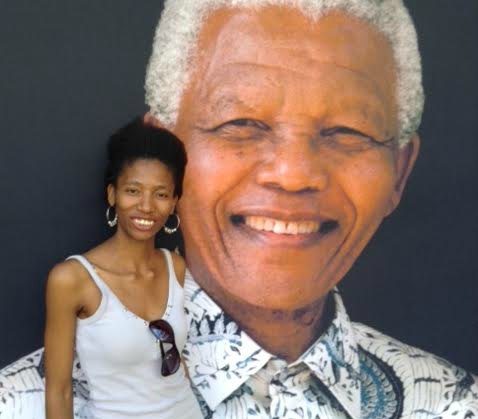 When NNPA Editor-in-Chief George Curry went to South Africa to cover Nelson Mandela’s funeral, he saw a huge pile of flowers in front of Mandela’s home with a large poster on top. On the poster was written: “Our world icon, the best way to ‘honour’ Madiba [Nelson Mandela] is Economic Freedom.” George sent me a photo of the poster and noted that as soon as he saw it, he thought of me.
When NNPA Editor-in-Chief George Curry went to South Africa to cover Nelson Mandela’s funeral, he saw a huge pile of flowers in front of Mandela’s home with a large poster on top. On the poster was written: “Our world icon, the best way to ‘honour’ Madiba [Nelson Mandela] is Economic Freedom.” George sent me a photo of the poster and noted that as soon as he saw it, he thought of me.
No doubt George thought of the many years I have been espousing the principles of economic empowerment for Black people, and I really appreciate his support over the past 20 years. Whoever created that poster on Mandela’s death was exactly right. Interestingly enough, as I shared with George, a few years after Nelson Mandela was released from prison and elected president, our church hosted a group of South Africans, two of whom I interviewed on my local radio show.
During that interview, I shared my thoughts on the importance of economic empowerment versus political empowerment, and strongly recommended to my guests that people in South Africa not make the same mistakes that Blacks in America made when we received our so-called “civil rights” and voting rights in 1964-65. Back then, we immediately began to think that all we had to do was elect Black politicians and things would be just fine for Black folks. How wrong we were to follow such a ridiculous notion, and how wrong we were to have abandoned our economic base in total pursuit of holding political office.
My admonishment to my South African brothers was for their people not to accept merely holding political office, but also work to obtain a portion of the economic resources accrued from their labor for generations. I shared that it made no sense to settle for political control when there is no sharing of economic power and control. Sadly, South Africa did not learn from our lesson and now finds itself in a situation similar to ours in this country. Less than 5 percent of the population in that nation controls and possesses 95 percent of the economic resources. While Black people have politics, White people have economics. Which would you rather have?
Marcus Garvey, Malcolm X, Amos Wilson, and many others warned us that without economic power there can be no real political power. Now we see someone in South Africa laying a poster in front of Mandela’s house that says the same thing. What a refreshing and encouraging sign. It points out that redistribution of political power is not where South Africa’s freedom struggle should have ended; economic redistribution should and must take place if Blacks in South Africa are truly going to prosper.
African author, journalist, and former diplomat Chike Onyeani wrote, “You cannot achieve true political independence without at the same time achieving economic independence. The so-called political independence we think we have now is merely an illusion. It is meaningless. It is not supported by any solid foundation. A house without a solid foundation is bound to crumple sooner or later. Without economic independence, sooner or later we will be recolonized politically.”
What could be plainer and simpler for us to understand and to implement?
Folks are arguing now over the “what if” scenarios related to Mandela’s tenure as president. Did he do the right thing? Could he and should he have done more? I say the people should look at the lessons of the past and make moves to improve their lot, by executing practical solutions for economic empowerment, and not fight over “what ifs.” Initiatives should be put in place that will redistribute South Africa’s wealth to the many Black people who continue to suffer from the vestiges of apartheid. Even though the process was reversed (politics before economics) in the 1990s, it is not too late for Black South Africans to change their economic landscape.
No one can question Mandela’s sacrifice, his strength and endurance in the face of such hopelessness nor his resolve to help his people. He did what he thought at the time was right for his country. Yes, there was more he probably could have done to gain a greater economic foothold. The same can be said of our Black leaders in the 1950s and 1960s. But that was then and this is now. All we have is now, and we must finally, once and for all time, do what it takes to achieve economic freedom. As the poster said, “The way to honour Madiba is by attaining economic freedom.” I suggest the same is true for Black Americans. The only way to honor those great men and women who fought for us is obtaining economic freedom, not merely holding political office.
Jim Clingman, founder of the Greater Cincinnati African American Chamber of Commerce, is the nation’s most prolific writer on economic empowerment for Black people. He is an adjunct professor at the University of Cincinnati and can be reached through his Web site, blackonomics.com.
